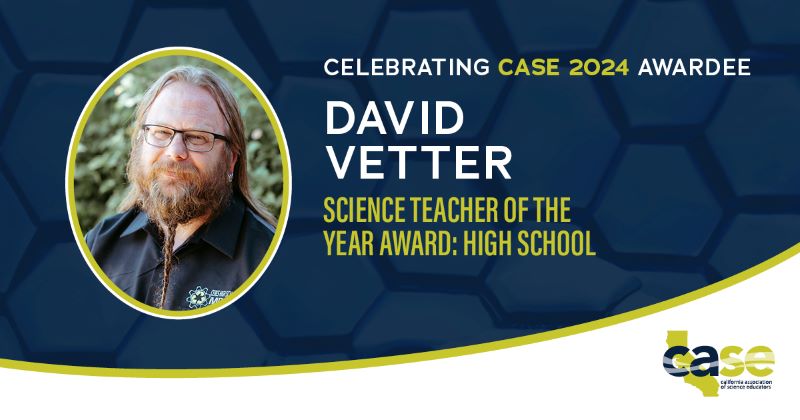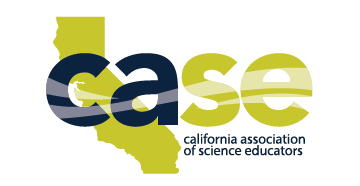
Teacher of the Year (High School): David Vetter
Meet David Vetter
Honestly, this is a huge surprise to me. I’m someone who just shows up and does the best I can. I never look for recognition. At the same time, this is incredibly meaningful. Just as I encourage my students to always push their limits and aim for the next step, and then make sure they are recognized when they do so, this award tells me that I’m doing something right. However, what that really means to me is to keep going, keep pushing, keep growing. This isn’t a crowning achievement. Rather, it’s a signpost saying that I’m on the right path. That’s far a greater thing to me. I’m proud of the work that I’ve done to get here and the people who have helped me achieve this. Now it’s time to head to greater heights and help others to achieve the same.

I believe every student has the ability to achieve success, both in and out of the classroom, and it is my job as a teacher to facilitate that. I will fight for and protect my students even as I push them to explore and try new things. Just like I believe there’s always more for my students to achieve, there’s always more for me to learn as an educator. I love seeing how other people approach the classroom, thinking about the pedagogy behind those decisions, and incorporating them into my classroom. There are always things to tweak or improve and if I can do something to make my students learn better, then it’s my obligation to do so.
How do you incorporate real-world phenomena into your lessons to make science engaging and relevant for your students?
Any time I can bring the world into the classroom it makes it better. This can be things I know my students are interested in, such as sports or cars, or with more culturally specific things I know many of them have experienced. One example of how I do this is with our unit on sound, which I base entirely on the idea of music. This is something almost all of my students have a deep interest in, so by making it more relevant to them they are more likely to buy into it. In addition, it means they already have some of the understanding of the concept, I just need to help them make those connections.
What strategies do you use to create an inclusive and supportive classroom environment for all students?
I want every student to feel welcome in my classroom. Some of that is achieved through my procedures and classroom management, such as being strict on vocabulary and how students address each other. More of it, though, is by trying to make sure that all of my students are represented in my room in one way or another. As a result I have a lot of students who tell me they feel comfortable in my classroom and will seek me out when they are having difficulty or need an escape.
How do you support equitable grading and ensure that all students have multiple opportunities to demonstrate their learning?
I’ve been using standards based grading in my classroom for about 6 and a half years now. I’ve always believed that it’s more important that a student learn something than focus on when they learn it. As a result, my students are allowed to redo any assessment before the last two weeks of the semester. I encourage students to come in and get extra help, accept late work, and have no extra credit. I want my students’ grades to reflect what they know, and if they need a little extra help to get there, then I’m going to be there to help them do it.
Quick Links
Exhibit Partner Package
Opening Soon
Join us at the 2025 California Science Education Conference, the premier event for science educators across California! This gathering is your chance to showcase your products, engage with educators, and maximize your impact through our exclusive Partner Program.


